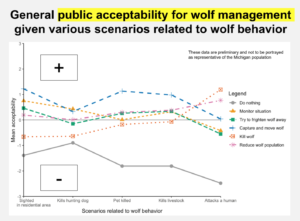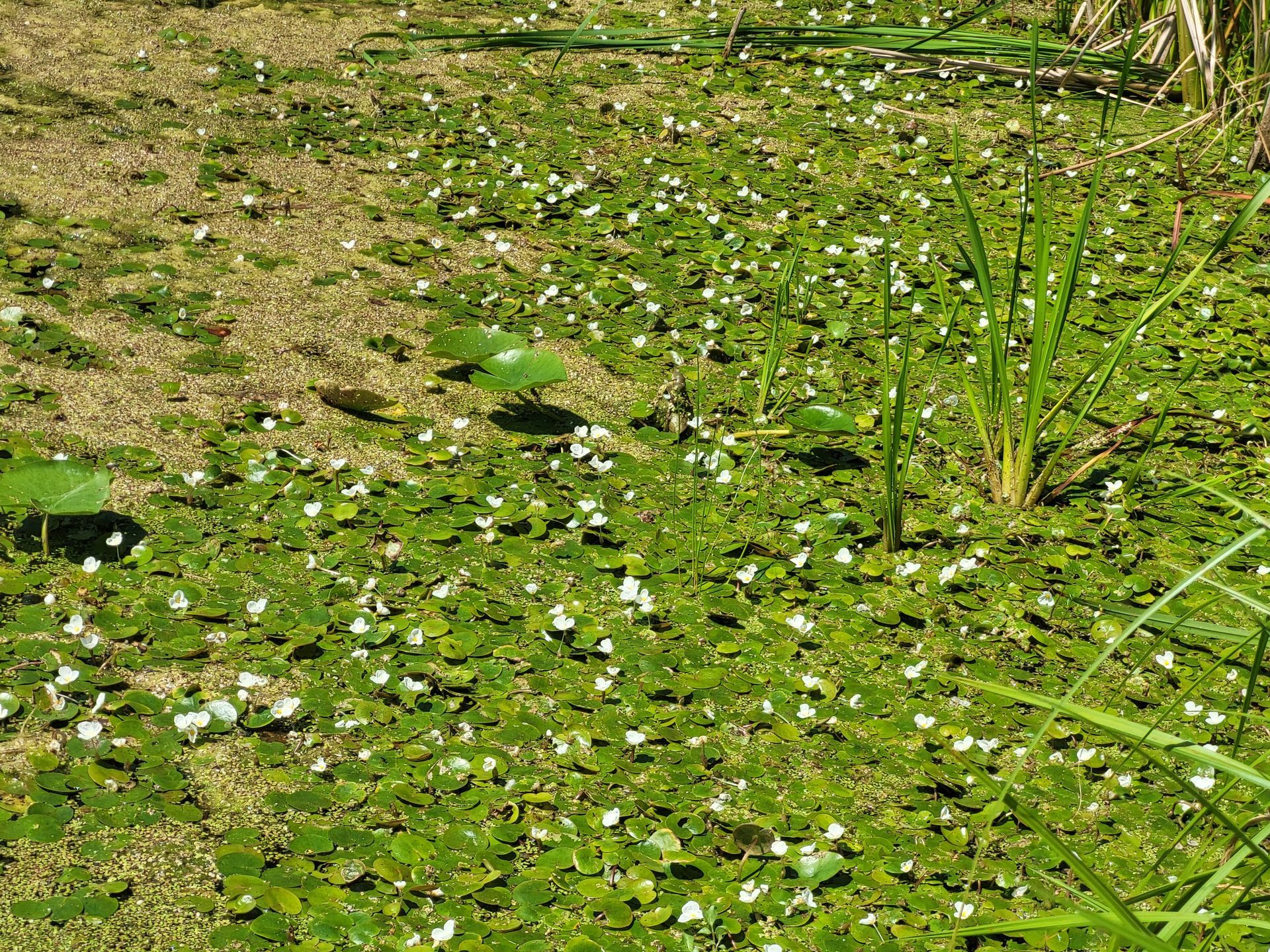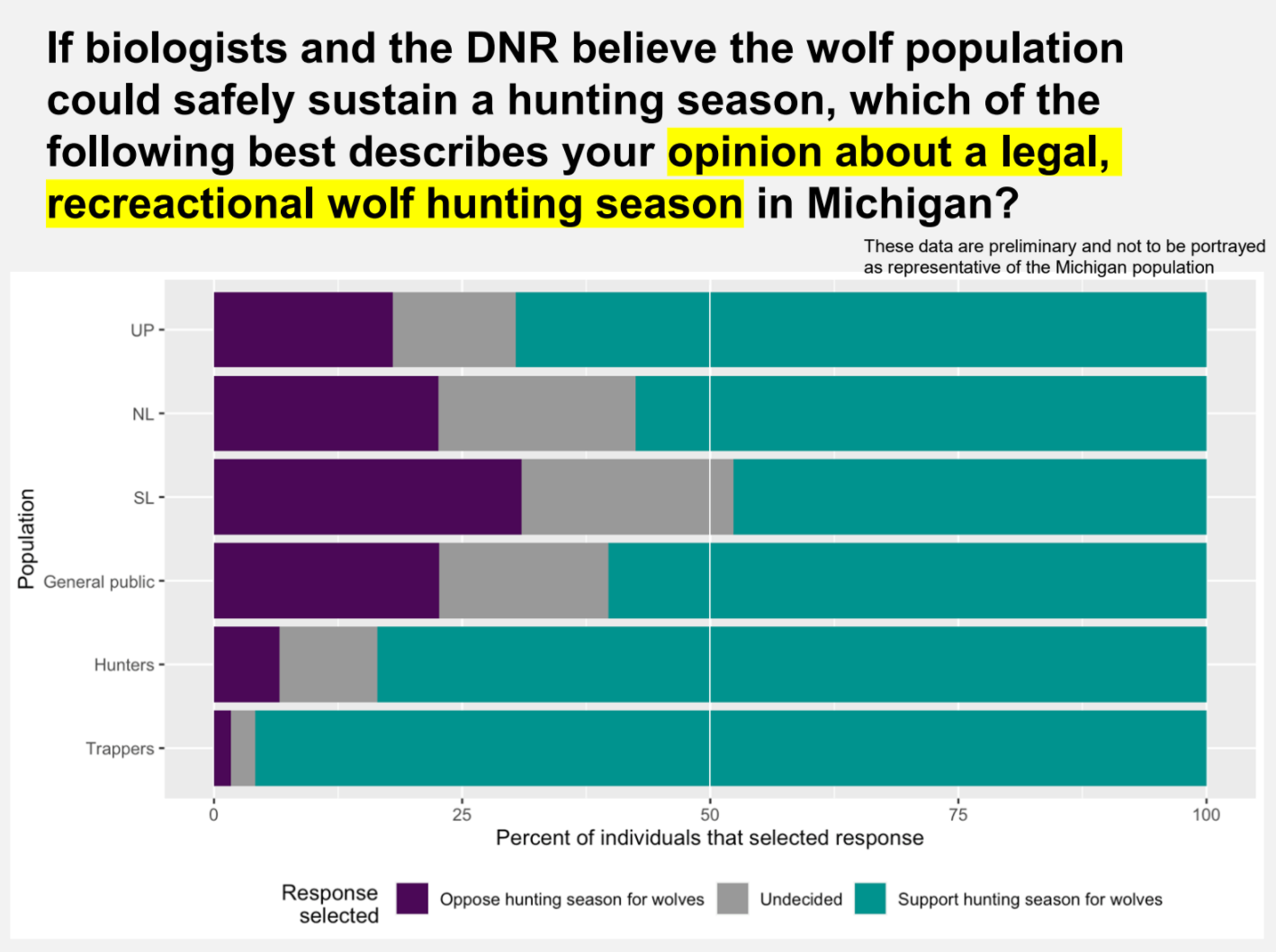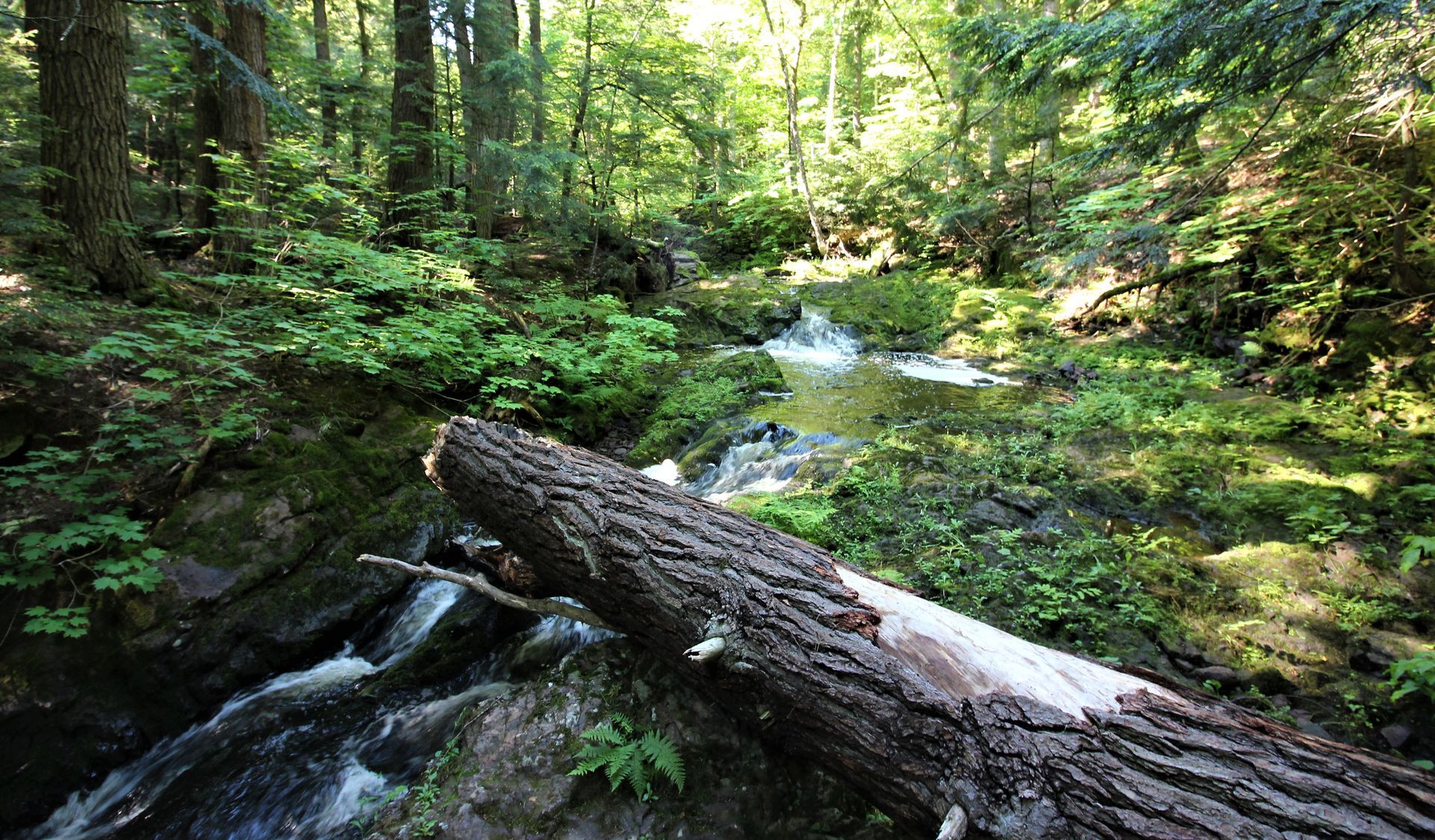WMAC: Hunter relives gruesome moment in public testimony, wolf management discussion to come in February
Initial results from public attitude survey responses show general support for wolf management
Wolf Management Advisory Council members heard emotional public testimony on Wednesday from a hunter detailing losing his dog to a wolf attack in front of him. Jordan Farmer’s testimony brought silence to the room.
Sitting up front and listening to Farmer was uncomfortable but necessary, said Amy Trotter, MUCC executive director and WMAC member.
“Jordan’s testimony was gruesome, but hearing the realities of what living with wolves truly feels like and recognizing that those dealing with the issue need help is part of the council’s responsibility,” Trotter said
Farmer’s public comment can be watched by visiting the Straits Area Sportsmen’s Club Facebook page . His comments start at about 13:50 in Session #2 – Public Comments. While not discussed at the meeting, it is important to note that there were laws passed back in 2008 to allow individuals to protect their livestock and dogs from injury and death due to wolves that are now in effect given the federal wolf delisting .
Before Farmer’s testimony, Shawn Riley of Michigan State University presented on the anticipated public attitudes towards wolves survey . Riley noted that the data was in its initial form. Using statistical modeling, Riley will develop a final survey report with data that can be extrapolated across the general public.
Riley’s presentation noted a general acceptance of wolf management by the public, including overwhelming support in the Upper Peninsula and Northern Lower Peninsula for hunting and trapping seasons. When asked to provide their opinion on a wolf hunt if biologists believe the wolf population could sustain a hunt, just under 50 percent of respondents who were Southern Lower Peninsula residents said they would support a hunt.
The presentation also demonstrated that respondents felt doing nothing was never an acceptable scenario related to dealing with wolf behavior. As the diagram below indicates, public acceptability of wolf management is dependent on specific wolf behavior. This data also shows the survey respondents found a reduction in the overall wolf population as an acceptable response to localized conflicts.

The mean demographic of survey respondents was about age 60, majority male and white.
Old Business
The council did make a series of recommendations related to sections of the wolf plan discussed at previous meetings. Under section 6.2 Maintain an Active Research and Monitoring Program the council passed a recommendation presented by Trotter to prioritize research and literature review examining a host of wolf and prey issues to allow the DNR to make sound judgments based on the best available science.
From section 6.3 Enact and Enforce Regulations Necessary to Maintain a Viable Wolf Population of the 2015 Wolf Management Plan, the council passed a series of recommendations:
- The DNR prioritizes Section 6.3.3, Action 5, that states “recommend modification of law, at the state level, to make penalties for illegally killing a wolf commensurate with other highly-valued species with similar legal status (endangered, threatened, game, or protected animals).” Trotter abstained, having no MUCC member-approved policy on this matter related to wolves as MUCC does for other big game animals.
- The DNR contact the Prosecuting Attorneys Association of Michigan to initiate a conversation about the importance of all fish and wildlife regulations, including the protection of wolves and hunter harassment laws.
- Recommend the department incorporate wolf education materials into the hunters safety program.
Lastly, the WMAC addressed section 6.5 Maintain Habitat Necessary to Sustain a Viable Wolf Population. The following recommendations were adopted:
- The department adopts a way to minimize impacts to den and rendezvous sites on state land and pursue partnerships to implement it on all other lands.
- Recommend the department manage state land for no net loss of aspen and pursue partnerships to pursue this strategy on all other lands.
- WMAC recommends that the department prioritize cooperation with federal, state and tribal agencies, and private landowners to identify and protect wolf habitat linkage zones as currently stated in section 6.5.2, Action 1.
The council is expected to start discussing sections 6.10 Manage Wolf Depredation of Domestic Animals and 6.12 Develop Socially and Biologically Responsible Management Recommendations Regarding Public Harvest of Wolves at its February 23 meeting at Treetops Resort in Gaylord.
The WMAC is comprised of six members: Dan Kennedy representing the DNR who will be leaving the DNR after this month and will be replaced by DNR Wildlife Chief Jared Duquette, Trotter representing a conservation organization (Michigan United Conservation Clubs), Mike Thorman representing a hunting organization (Michigan Hunting Dog Federation), Miles Falck representing tribal interests (Great Lakes Indian and Fish and Wildlife Commission), Dick Pershinske representing agricultural interests (Upper Peninsula resident) and Bee Friedlander representing an animal advocacy organization (Attorneys for Animals).
The council’s objective is to make recommendations to the DNR, Michigan Legislature and Natural Resources Commissions regarding the state’s wolf management plan.
Michigan’s minimum winter wolf population estimate is 695 wolves (winter 2019-2020), according to the DNR — greater than the original population minimum of 200 required for delisting established by the DNR in 1997.
In late 2020, the Trump administration delisted the gray wolf from the Endangered Species Act and handed management of the species back to states. That delisting has been challenged by anti-hunting organizations in a California federal court.
Recent Posts





